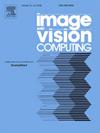用于医学成像中少镜头学习的非负子空间特征表征
IF 4.2
3区 计算机科学
Q2 COMPUTER SCIENCE, ARTIFICIAL INTELLIGENCE
引用次数: 0
摘要
在典型的视觉场景识别任务中,有大量数据集可用于训练深度神经网络(DNN),与此不同的是,由于数据稀缺,使用 DNN 进行医学图像诊断往往面临挑战。在本文中,我们通过探索低维空间中不同的数据属性表征,研究了基于数据的医疗成像中少数几次学习的有效性。我们在少量学习中引入了不同类型的非负矩阵因式分解(NMF),以研究降维后子空间中保留的信息,这对于缓解医学影像分类中的数据稀缺问题至关重要。在验证 NMF 的有效性方面进行了广泛的实证研究,特别是其有监督的变体(如判别 NMF、有监督和受约束的稀疏性 NMF),以及与主成分分析(PCA)(即基于特征向量的协作表示降维技术)的比较。通过涵盖 11 个不同疾病类别的 14 个不同数据集,全面的实验结果以及与相关技术的比较表明,NMF 在医学影像中的少量学习中是一种具有竞争力的 PCA 替代方案,并且有监督的 NMF 算法在子空间中具有更高的判别能力和更强的有效性。此外,我们还证明了 NMF 基于部分的表示法,尤其是其监督变体,在样本有限的医学成像中对病变区域的检测具有显著的影响。本文章由计算机程序翻译,如有差异,请以英文原文为准。
Non-negative subspace feature representation for few-shot learning in medical imaging
Unlike typical visual scene recognition tasks, where massive datasets are available to train deep neural networks (DNNs), medical image diagnosis using DNNs often faces challenges due to data scarcity. In this paper, we investigate the effectiveness of data-based few-shot learning in medical imaging by exploring different data attribute representations in a low-dimensional space. We introduce different types of non-negative matrix factorization (NMF) in few-shot learning to investigate the information preserved in the subspace resulting from dimensionality reduction, which is crucial to mitigate the data scarcity problem in medical image classification. Extensive empirical studies are conducted in terms of validating the effectiveness of NMF, especially its supervised variants (e.g., discriminative NMF, and supervised and constrained NMF with sparseness), and the comparison with principal component analysis (PCA), i.e., the collaborative representation-based dimensionality reduction technique derived from eigenvectors. With 14 different datasets covering 11 distinct illness categories, thorough experimental results and comparison with related techniques demonstrate that NMF is a competitive alternative to PCA for few-shot learning in medical imaging, and the supervised NMF algorithms are more discriminative in the subspace with greater effectiveness. Furthermore, we show that the part-based representation of NMF, especially its supervised variants, is dramatically impactful in detecting lesion areas in medical imaging with limited samples.
求助全文
通过发布文献求助,成功后即可免费获取论文全文。
去求助
来源期刊

Image and Vision Computing
工程技术-工程:电子与电气
CiteScore
8.50
自引率
8.50%
发文量
143
审稿时长
7.8 months
期刊介绍:
Image and Vision Computing has as a primary aim the provision of an effective medium of interchange for the results of high quality theoretical and applied research fundamental to all aspects of image interpretation and computer vision. The journal publishes work that proposes new image interpretation and computer vision methodology or addresses the application of such methods to real world scenes. It seeks to strengthen a deeper understanding in the discipline by encouraging the quantitative comparison and performance evaluation of the proposed methodology. The coverage includes: image interpretation, scene modelling, object recognition and tracking, shape analysis, monitoring and surveillance, active vision and robotic systems, SLAM, biologically-inspired computer vision, motion analysis, stereo vision, document image understanding, character and handwritten text recognition, face and gesture recognition, biometrics, vision-based human-computer interaction, human activity and behavior understanding, data fusion from multiple sensor inputs, image databases.
 求助内容:
求助内容: 应助结果提醒方式:
应助结果提醒方式:


